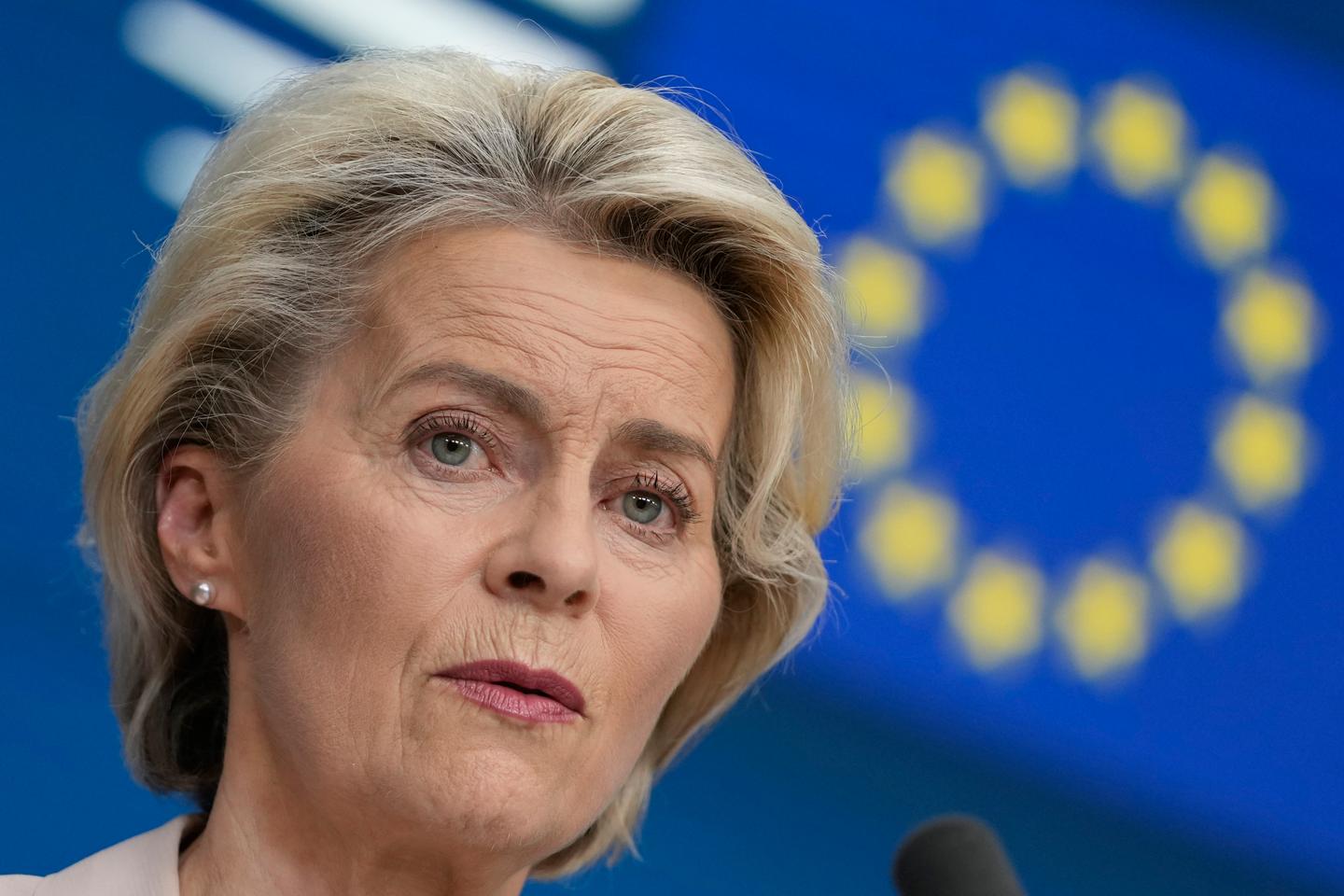EU leaders struck a summit deal Thursday, June 27, to return Ursula von der Leyen as head of the powerful European Commission, while tapping Estonia’s prime minister Kaja Kallas as the bloc’s top diplomat.
The late-night accord announced by EU officials carves up the bloc’s top institutional jobs for the five years to come, with former Portuguese prime minister Antonio Costa to head the European Council bringing together member states. All three nominees hail from the centrist alliance that dominates the EU parliament following elections this month despite gains by the far right, including Italy’s Giorgia Meloni who put up public resistance to the top jobs deal.
While Costa, 62, will automatically succeed Council President Charles Michel later this year, both von der Leyen, 65, and Kallas, 47, need to lock in majority support in the European Parliament, starting with a July vote on the commission chief that is predicted to be tight.
Tested during her first term by multiple crises from the Covid pandemic to the Ukraine war, former German defense minister von der Leyen – if confirmed – faces a no less daunting set of challenges from the Russian threat to climate change and a rising China.
Little mystery
There was little mystery surrounding the final lineup, as an inner group of leaders had locked in a draft deal on the trio of names days earlier. The agreement shares outposts between von der Leyen’s center-right European People’s Party (EPP), Costa’s Socialists and Democrats (S&D) and Kallas’s centrist Renew Europe.
Rounding out the list, lawmakers are expected to return the EPP’s Roberta Metsola as EU Parliament president. But even with the centrists in a position of strength, diplomats said there was little appetite for railroading through a deal without a consensus.
Hungary’s nationalist leader Viktor Orban had denounced it as a stitch-up, saying “European voters have been deceived,” though his opposition was not enough to derail the accord, which needed the support of 15 out of 27 leaders.
‘No Europe without Italy’
Leaders appeared more concerned to secure a buy-in from Italy’s Meloni, who had called the deal-making process “surreal” and accused fellow leaders of acting like “oligarchs.” Her argument was that the election success of her hard-right European Conservatives and Reformists (ECR) grouping, set to be the EU Parliament’s third-largest force, as well as Italy’s standing as the bloc’s third-biggest economy, should be reflected in the EU leadership.
Polish Prime Minister Donald Tusk, who negotiated the deal for the EPP, sent a strong signal in her direction as the summit opened. “There is no Europe without Italy, and there’s no decision without Prime Minister Meloni. It’s obvious,” he told reporters, with similar conciliatory sounds coming from Greece and Cyprus.
The same message came from Austria’s center-right leader Karl Nehammer, who applauded Meloni’s “many good initiatives for the European Union and for security at our external borders.”
Partner service
Learn French with Gymglish
Thanks to a daily lesson, an original story and a personalized correction, in 15 minutes per day.
Try for free
Von der Leyen meanwhile appeared to have Meloni in mind with an open letter to EU leaders saying she was open to examining calls for migrants to be processed in third countries – as Italy is already doing.
Short of a seat at the top table, Meloni made clear she wanted an influential role for Italy, starting with a vice presidency in the next European Commission with a say over industry and agriculture.
With France heading to the polls Sunday for the first round of an election where the far-right Rassemblement National has a chance of leading the government, there was clear eagerness to get the EU jobs squared away.

